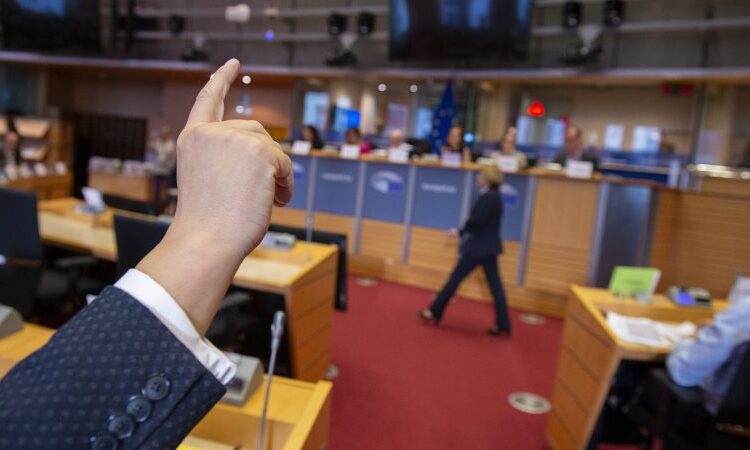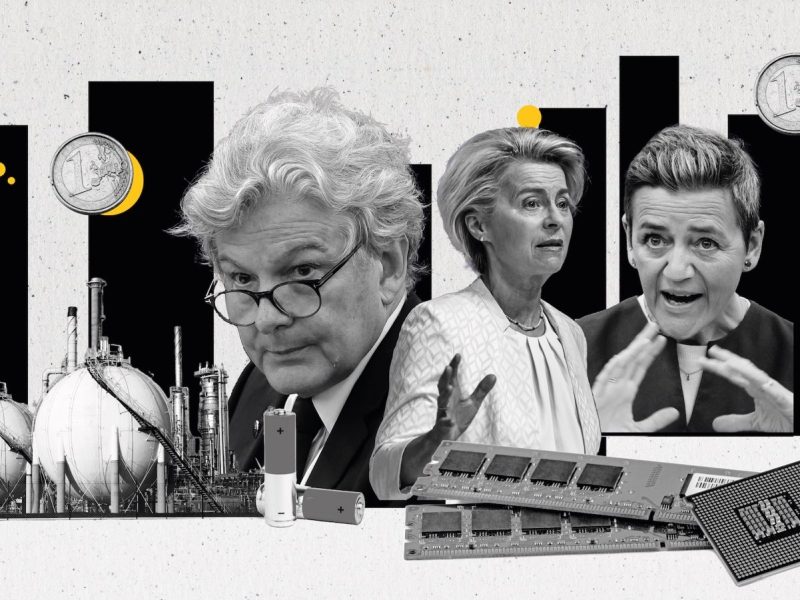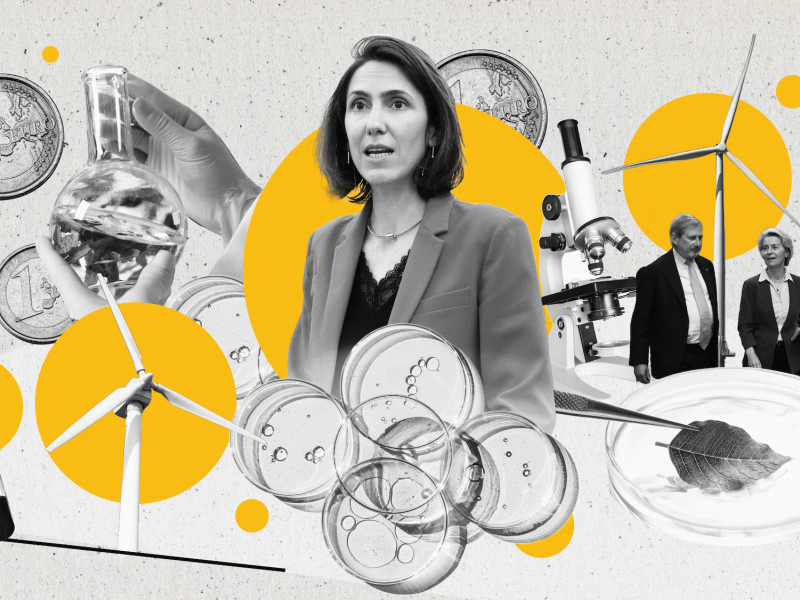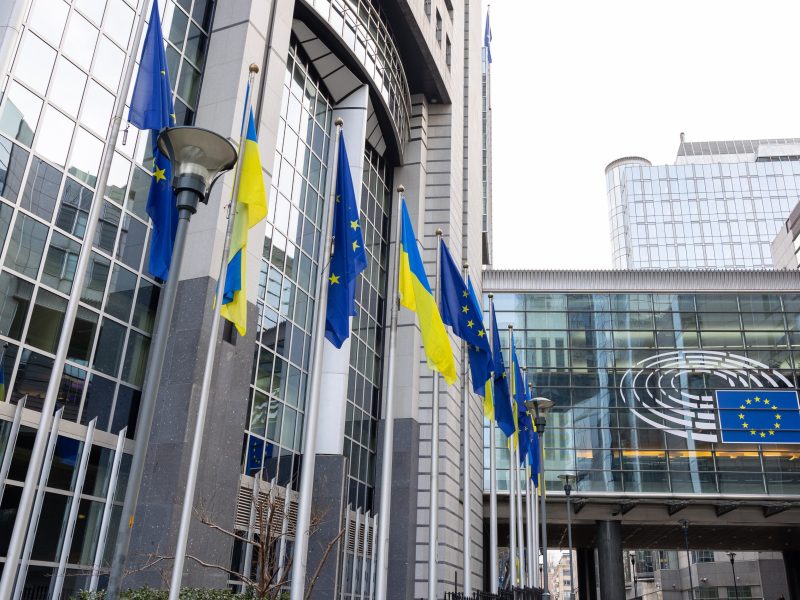
Members of the European Parliament (MEPs) from both industry and budget committees voted on Monday (9 October) in favour of creating a Strategic Technologies for Europe Platform (STEP) with a broader scope than the European Commission proposal and more fresh cash from member states.
The regulation, first introduced by the Commission in late June, looks to provide extra funding to projects deemed of strategic importance in key technological sectors: deep tech, clean tech and biotech.
It is “crucial for Europe to have a technological edge for the world of tomorrow” and counter the effects of Chinese and American large-scale tax breaks and subsidy packages, Commission President Ursula von der Leyen said at the time.
However, the proposal fell short of the Commission’s initial promise that the EU would create an ambitious sovereignty fund to go head-on against the US Inflation Reduction Act and tackle risks of single market fragmentation due to large member states’ national subsidy programmes.
Instead, under the Commission’s proposal, the STEP would only support particular tech projects that benefit from existing funds, with a mere €10 billion cash top-up from member states.
The joint committee vote on Monday, with 43 votes in favour, six against and 15 abstentions, speaks in favour of this new financing instrument. However, it is seen by many as no more than a step towards a full-fledged sovereignty fund further down the line.
Cash and scope
The new text enshrines an extra €3 billion fresh money top-up atop the Commission’s €10 billion, as the graph below indicates.
The numbers fit the parliament’s position on the 2024-27 review of the Multiannual Financial Framework (MFF), adopted last week.
This marks the ambition for STEP to become something more than a mere platform, but instead, pave the way to a fully-fledged and financially ambitious EU sovereignty fund.
That said, the very way the Commission has built the STEP amounts to “over-ambition of a beggar,” Christian Ehler, EPP co-rapporteur for the file, told Euractiv hours before the vote, dubbing it a “not well drafted” legislation.
He claims funding is too poor to effectively support the active decarbonisation of the EU economy as established in new EU legislations, including the Critical Raw Materials Act (CRMA) and the Net-Zero Industry Act (NZIA) – the latter of which Ehler is also rapporteur for.
Unlike the Commission proposal, co-rapporteurs Ehler and José Manuel Fernandes (EPP) were adamant about linking the new platform to critical EU legislations, especially NZIA and CRMA.
The approved legal report now clearly establishes the link between STEP funding and these two legislative behemoths. “Technology categories are referenced to and defined with concrete legislations,” amendments read, while a reference to strategic projects’ entire supply chains has been added.
Strategic projects under STEP should meet the competitiveness and resilience criteria set out in the NZIA.
Use of cohesion funds
In an aim to have strategic projects from across EU member states benefit from the seal, the newly agreed text stipulates that 50% of the Innovation Fund’s €5 billion top-up will only be made available to member states whose average GDP per capita is below the EU average.
The other 50% will be accessible to all member states, irrespective of their economy’s size.
This split is due to only apply up to 31 December 2025, after which the entire fund will be made accessible to all indiscriminately.
As for the use of the European Regional Development Fund (ERDF), an alternative amendment from socialist (S&D), green, centrist (Renew), right-wing conservative (ECR) and the left MEPs, which ran against the co-rapporteur’s wishes, kept in the Commission’s provision that only member states below the EU’s GDP average could use ERDF money to fund industry-sector projects under STEP to foster industrial developments in regions that need it most.
More prosperous member states may only use ERDF money to fund ‘STEP-approved’ SME projects but must stay clear of any industry-related project.
This was not entirely to Ehler’s taste, however, who wanted to see this GDP-focused provision removed altogether to accommodate for the reality that industrial projects of STEP relevance can be found everywhere in the EU – and so the funding should be focused on where the investment has the greatest positive impact.
The STEP aims to meet an impossible “triangle of ambitions: address innovation, reduce our dependencies, but also fit within cohesion policy,” Ehler told Euractiv.
To those in favour of the Commission’s original text, all but the EPP and part of the German delegation wanted to “remain close to cohesion policy’s philosophy and favour regions that most heavily rely on ERDF,” Valérie Hayer, a Renew MEP who signed the alternative amendment, told Euractiv.
Accountability and monitoring
Unlike an actual fund that would directly grant cash to eligible projects, STEP acts as a signalling tool, creating a new ‘Sovereignty Seal’ for selected projects to attract both public and private funding and fast-track the granting of EU funds’ money – first of which InvestEU and the Innovation Fund. A new dedicated website is expected to provide investors with information.
The new legal report aims to strengthen the accountability and process through which sovereignty seals are granted by creating a new STEP Committee. Some of its roles should include liaising with national competent authorities responsible for calls for proposals and other structures, including the Net-Zero Europe platform.
Further monitoring provisions have also been added, including qualitative and quantitative information on the platform’s actual contribution to cross-border projects of strategic interest.
The Council of the EU has yet to agree on its general approach. The legal report approved by both committees is scheduled to reach the plenary on 16 October.
[Edited by János Allenbach-Ammann]











